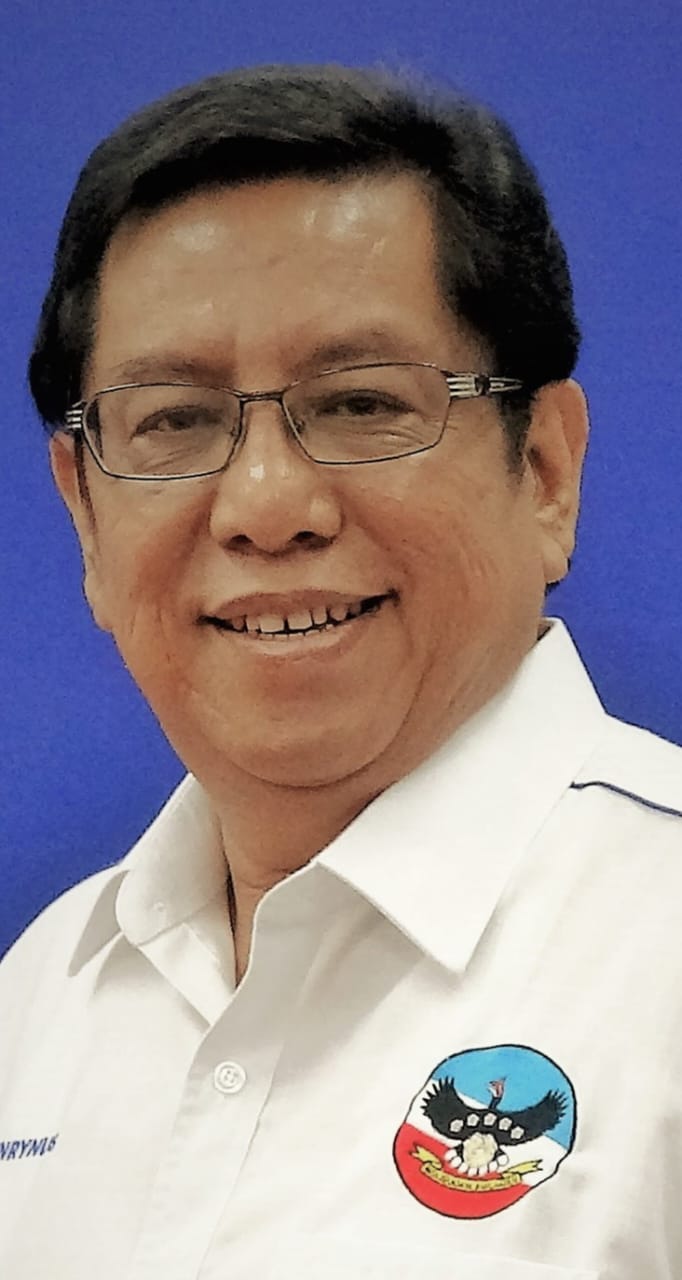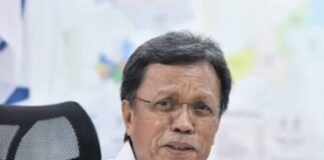KOTA KINABALU: Parti Kerjasama Anak Negeri (ANAK NEGERI) has called for a clearer definition or a more precise list of “Sabah native” races, similar to what exists for Sarawak, in order to bring clarity and remove any doubt and ambiguity.
This call aims to remove existing ambiguities and protect the rights and heritage of genuine indigenous communities in Sabah.
It’s President, Datuk Henrynus @ Rinus Amin, also wants to add a clause no native certificates are valid without an “appropriate declaration made by Sabah Native Court.”
He said he also wants a clause that specifically states if evidence emerges that a citizenship and/or a native certificate was obtained fraudulently, the issuing authority (such as the Native Court in Sabah) has the legal basis to revoke it, and those involved in the fraud may face further legal repercussions.
Parti ANAK NEGERI is championing the rights of genuine native communities to protect their ancestral land from encroachment by individuals it deems ‘bogus natives.’
There’s an urgent need to resolve this issue because foreigners, who are reportedly posing as Malaysian citizens and natives with fraudulently obtained identity cards, are illegally occupying native or customary land across Sabah
We’re getting troubling reports about customary native land being occupied by new comers with dubious identity in several districts of Sabah, including Ranau, Keningau, Sook, Nabawan, Tongod, Beluran, Pitas, Sipitang, Lahad Datu, and Kalabakan.
These reports indicate that newcomers with questionable citizenship are allegedly purchasing or occupying these lands and creating new settlements.
Henrynus also expressed concerns about shifting demographics resulting from the existence of new land owners in Sabah claiming to be natives.
He said there are allegations that thousands of acres of land have been granted to “dubious natives” (individuals of questionable native status) in several districts of Sabah.
These individuals are reportedly establishing new settlements and villages, and then registering as voters, which critics argue is fundamentally altering the political demographics of these areas.
Claims have been highlighted that as many as 500,000 individuals in Sabah may have obtained Malaysian identity cards (MyKad) through questionable means.
This issue is particularly concerning given the reported shifts in ethnic demographics. Currently, the Kadazandusun population now stands at only 19% of the total, and the Bajau at 14%.
In contrast, the Malay population, which was previously negligible, has reportedly surged to 9%.
The question being raised is the origin of this new Malay population. If they are not from Peninsular Malaysia, the conclusion drawn is that they are individuals from neighboring Indonesia who are allegedly masquerading as Malays to obtain identity cards and subsequently claim rights to native land.
The party is also particularly concerned about coastal squatter settlements near major towns, which it alleges are populated by individuals of questionable citizenship claiming native status and seeking state recognition for their villages.”
He said in Sabah, the primary enactment that defines “natives of Sabah” is the Interpretation (Definition of Native) Ordinance 1952 (Sabah Cap 64).
Unlike Sarawak, which lists specific indigenous races, he said the Federal Constitution for Sabah refers to “a person of a race indigenous to Sabah,” again deferring to the Interpretation (Definition of Native) Ordinance 1952.
He said the status of Kadazandusun, Murut and Sungai or collectively Momogun is not clearly defined in Interpretation (Definition of Native) Ordinance 1952.
This lack of a precise list casts doubt on the validity and relevance of the existing definition,” said Datuk Henrynus who was launching Parti ANAK NEGERI Village Committee at Kg Kinaundusan (N36 Kundasang) Ranau recently.
But amendment to the definition of “native” in Sabah has been a long-standing and complex issue which no state government was willing to take on.
He said the issue was deemed not a priority and thus relegated to the political backyard by the current state administration.
He said he is not sure what is being done by the GRS State Government, but questioned why Kadazandusun State State Assemblymen from Star, PBS, and UPKO who were outspoken on the issue during election, are seen as largely oblivious to the facts, and remain muted after the election.
Have they forgotten their roots? he asked.
The Interpretation (Definition of Native) Ordinance 1952 provides a legal framework for who is considered a native in Sabah. There are several criteria, including:
- Persons both of whose parents are or were members of a people indigenous to Sabah.
- Persons ordinarily resident in Sabah and live as a member of a native community, with at least one parent or ancestor being a native within the meaning of the first point.
- Persons ordinarily resident in Sabah who are members of certain other indigenous peoples (e.g., from Sarawak, Brunei, Indonesia, or the Sulu group of islands in the Philippine Archipelago) and have lived as and been a member of a native community for a continuous period, among other requirements.
He said Parti ANAK NEGERI will push for the clouse to be amended to clarify and establish the status of new migrants from Malaya, the Philippines and Indonesia as non native.
He said Sabah natives of Sulu origins or for that matter from Sulawesi Indonesia who were residents of Sabah before 1963 are included as native of Sabah, but those who were recent migrants from the Philippines or Indonesia arriving after 1963 are not native to Sabah.
Henrynus wants a specific clouse to prevent the existence of “backdoor natives” who become natives by fraudulent means.
“The vague definitions and the reliance on native court declarations have allegedly led to instances where individuals without genuine indigenous lineage have obtained “native status.”
This is often linked to political influence or fraudulent means.
He said being recognized as a “native” in Sabah comes with significant privileges, particularly concerning land ownership (Native Customary Rights land, Native Title lands) and other economic benefits.
This makes the status highly sought after, creating an incentive for abuse by unscrupulous individuals to buy native land or receive privileges reserved for Sabah natives.
Henrynus also expressed concern about abuse by illegal immigrants.
There are ongoing worries that illegal immigrants in Sabah might exploit these loopholes to gain native status and the associated benefits, further diluting the rights of genuine indigenous communities.
The primary rationale for a clearer definition is to protect the rights, land, and heritage of genuine indigenous communities in Sabah.
Without a precise definition, these native rights are vulnerable to encroachment by those unqualified to be a native.


